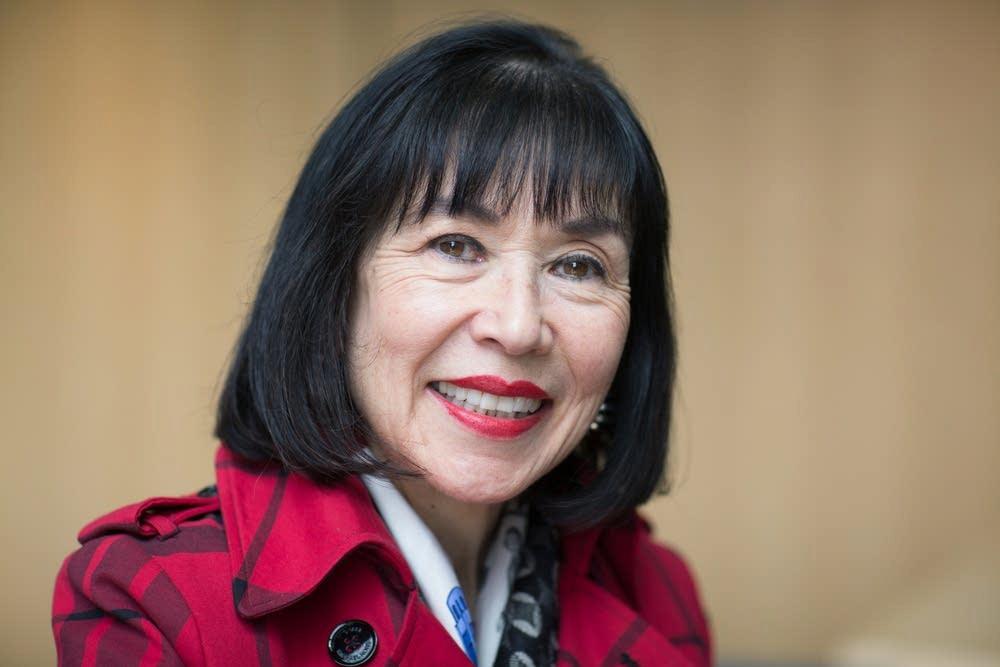Jan 23, 2018
PlaceMaker: Karen Korematsu Celebrates Her Father’s Legacy in the Presidio
Meet founder of an institute dedicated to advancing racial equity, social justice, and human rights.Karen Korematsu is the Founder and Executive Director of the Fred T. Korematsu Institute and the daughter of the late Fred T. Korematsu, a Japanese American social justice and civil rights hero, who was unjustly imprisoned during World War II.
Since her father’s passing in 2005, Karen has carried on his legacy as a public speaker, educator, and civil rights advocate. In 2009 she established the Fred T. Korematsu Institute, located in the Presidio, to advance racial equity, social justice, and human Rights for all. We talked with her about working in the Presidio, her involvement with the current Presidio Officers’ Club
exhibition, EXCLUSION: The Presidio’s Role in the World War II Japanese American Incarceration, and the Fred Korematsu Day of Civil Liberties and the Constitution, coming up on January 30, 2018.
Why did you choose to base the Fred Korematsu Institute in the Presidio?
Good question! The main reason was because my father was imprisoned here. He was arrested for evading internment on May 30, 1942. He was found guilty and had a bail hearing at what was then the federal courthouse in San Francisco and, even though he was given bail, the MPs were waiting outside and they brought him to a stockade in the Presidio. We don’t know to this day where in the Presidio the stockade was located, but we’re doing research with the Presidio Trust exhibition program’s help.
Being located in the Presidio has also provided an opportunity to promote education around my father’s story and reveal the role the Presidio as a U.S. Army post played during the World War II Japanese American incarceration. Also, I wanted to at the Presidio because General DeWitt’s Office is here. This is where the Exclusion orders were issued, which resulted in the incarceration of 120,000 Japanese Americans.
You contributed to the development of the current Presidio Officers’ Club EXCLUSION exhibition that explores the incarceration of Japanese Americans. Did becoming involved in this project provide any new insight?
The exhibition provides a wonderful opportunity for education. It’s been really wonderful to talk with the teachers and all the different people who visit the exhibition. A lot of people don’t know the history of Japanese incarceration, so it’s been important to share. I crisscross the country and tell people about this exhibition that it’s not going to be here forever. They really need to come and see it. It’s part of Asian American history in the Bay Area – along with Angel Island and Rosie the Riveter – that people need to learn about. We need to make sure we don’t make the same mistakes in the future.
What’s your favorite part about being located in a national park and National Historic Landmark District?
It’s a beautiful place, and who can object to having an office in nature? Also, the Military Intelligent Service Historical Learning Center is here in the Presidio, and we partner with the National Japanese American Historical Society on a lot of different activities. Also, working with the Presidio Trust exhibition program provides opportunities to talk to visitors. When I tell people I’m here in a national park, their eyes spark up! More recently, I’ve had people who’ve visited the new Presidio Visitor Center tell me they’ve seen the video I’m in where I talk about Japanese American incarceration and the EXCLUSION exhibition. This is a big plus and helps us tell the story.
Fred Korematsu Day is on January 30. What would you like people to know about your father?
I don’t think people realize my father really believed in this country and our constitution. The official name of the day is “the Fred Korematsu Day of Civil Liberties and the Constitution.” These are things we need to keep fighting for, particularly with the challenges this country is currently facing. My father was a very open, kind, and generous person who treated everyone the way he wanted to be treated. He realized his Supreme Court case represented more than just what had happened to him. He always thought of other people first and looked for the opportunity to teach others about the World War II Japanese Incarceration through his own story.
Another thing, I’m not sure everyone knows this, but my father is the first Asian American in U.S. history to have a state-wide day named in his honor. Fred Korematsu Day is honored in four states – California, Hawaii, Virginia, and Florida, and New York City just announced they’ll celebrate this day in perpetuity and they’re starting off with a ceremony this year in New York City. So, it’s not just a California story, or a Japanese American story, it’s an American story that affects all our civil liberties.
Watch the video about Japanese American Incarceration featuring Karen Korematsu >>
If you’re a teacher, learn more about the Korematsu Institute Curriculum Kits >>
